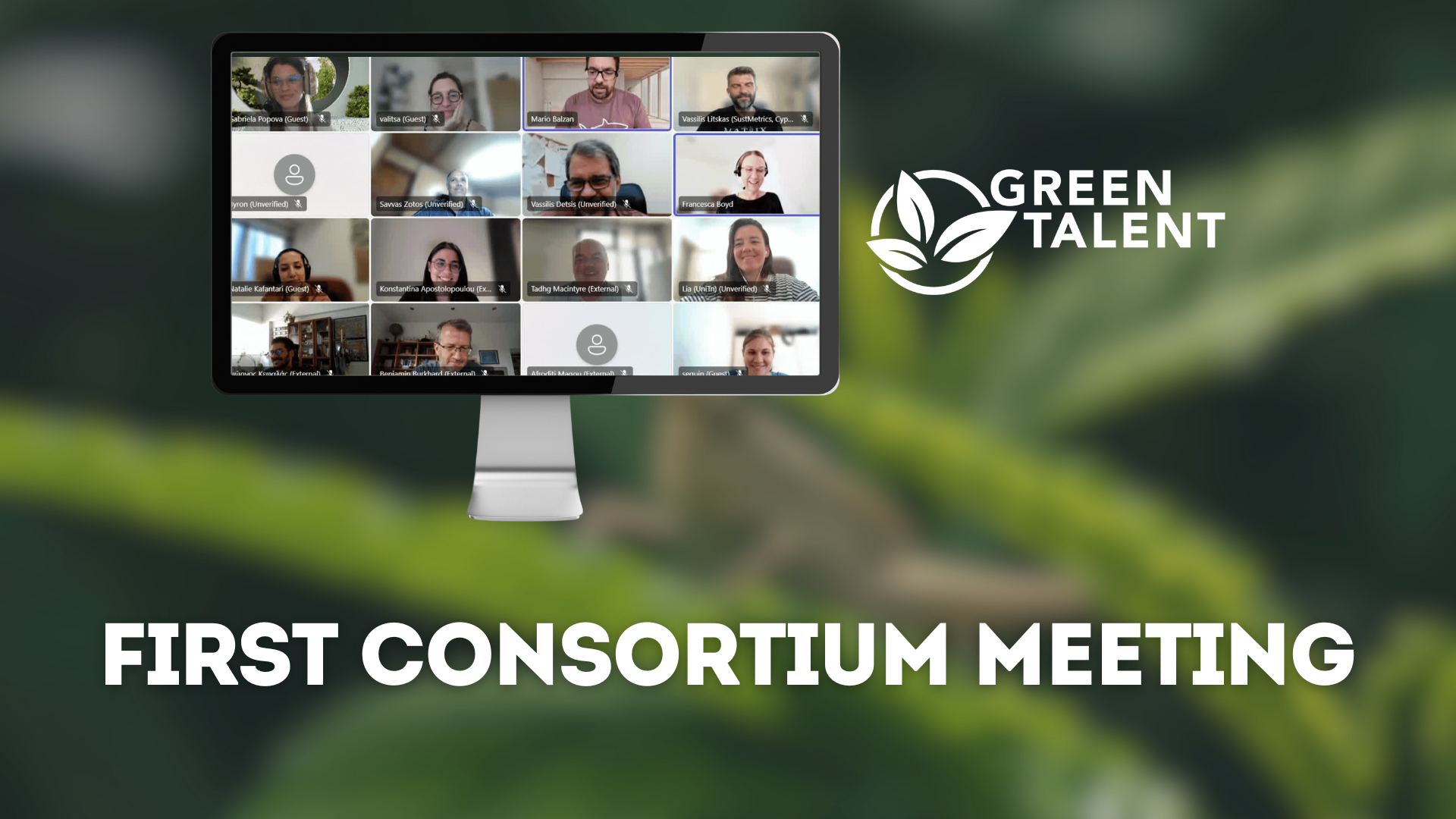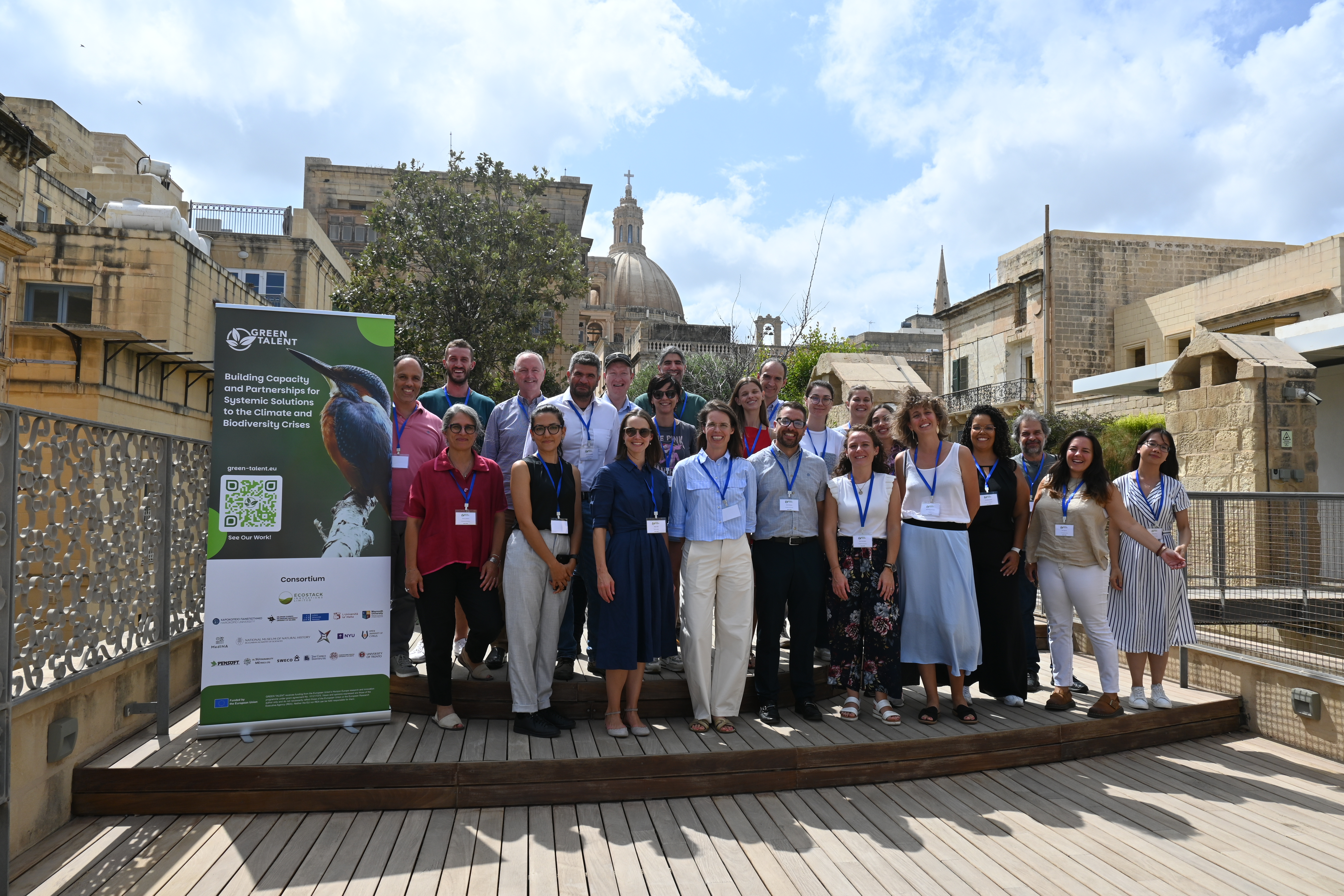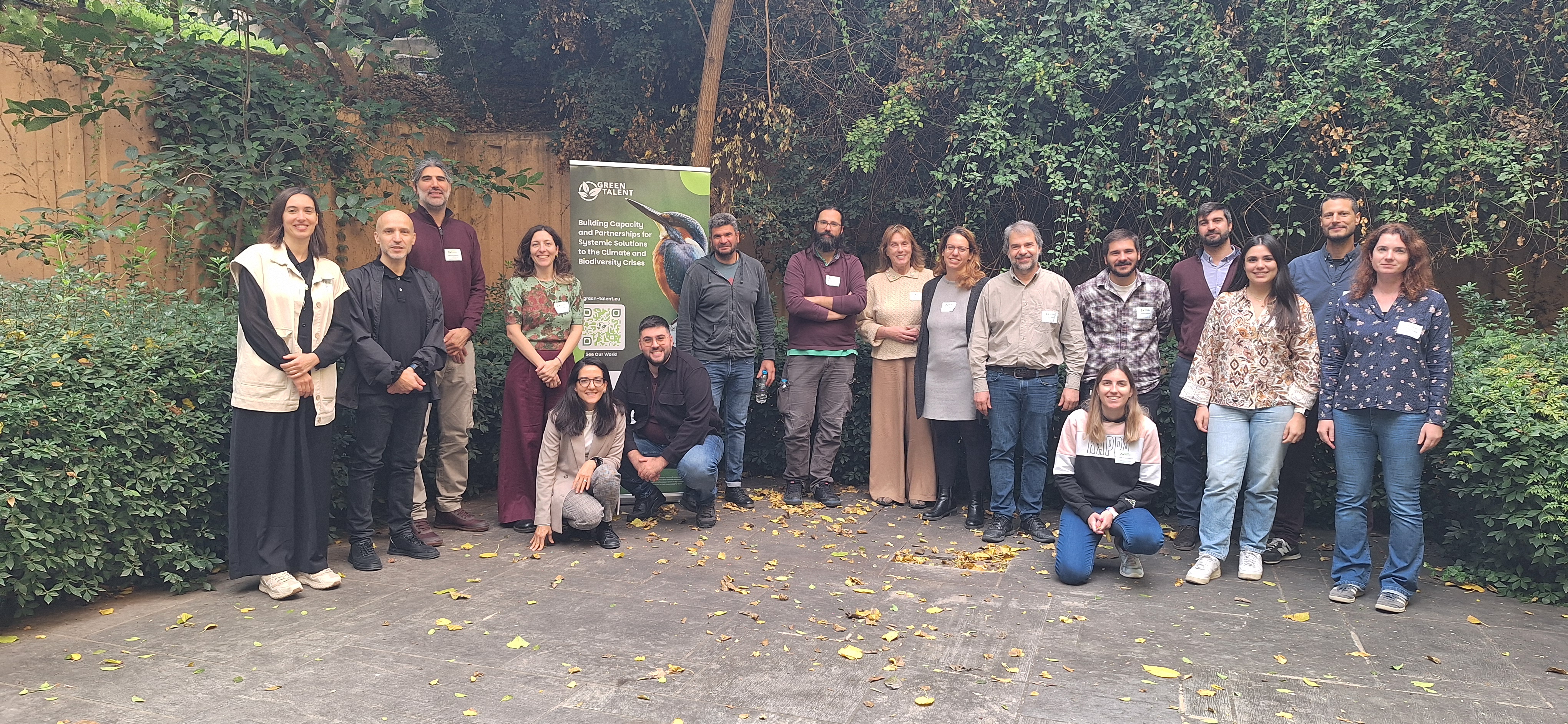
As part of the co-designing process of the Green Talent Roadmap, on 21 November, the first project workshop was organised in Athens, Greece, dedicated to addressing knowledge, competence and skills gaps across R&I staff in Widening Countries. The workshop is part of the broader agenda of Work Package 2, in which the project’s roadmap will be developed, aiming to prioritise policy considerations at the local, national and regional level, compatible with efforts to enhance biodiversity conservation and climate change mitigation.
Hosted by Harokopio University of Athens, the event welcomed a diverse community of stakeholders from Europe’s Widening and non-Widening Countries, including representatives from the private sector, NGOs, and public governmental bodies both in person and online. The goal of this series of workshops is to create a collaborative community of practice and understand how to better design project training and outputs to be most useful to stakeholders’ activities and comply better with their daily needs in incorporating topics of biodiversity and climate change.
Divided into two parts, the workshop began with an introduction session facilitated by both the project coordination team and project participants from the Harokopio University of Athens. To give an overview of the project’s mission and vision, Dr. Mario Balzan, coordinator of Green Talent, joined the session, sharing more insights on how the project envisions enhancing the capacity of organisations and filling gaps in R&I, while also working towards halting biodiversity loss and implementing climate mitigation. Dr. Evangelia Drakou, assistant professor at the Harokopio University of Athens, took the floor later and laid clear expectations of the workshop’s ambitions and benefits for everyone involved. To wrap up the introductory session, Dr. George Kefalas also gave a presentation, focusing on the current state of biodiversity and climate change in Europe and the European Union’s efforts to implement a change mitigation and adaptation strategy by 2030.
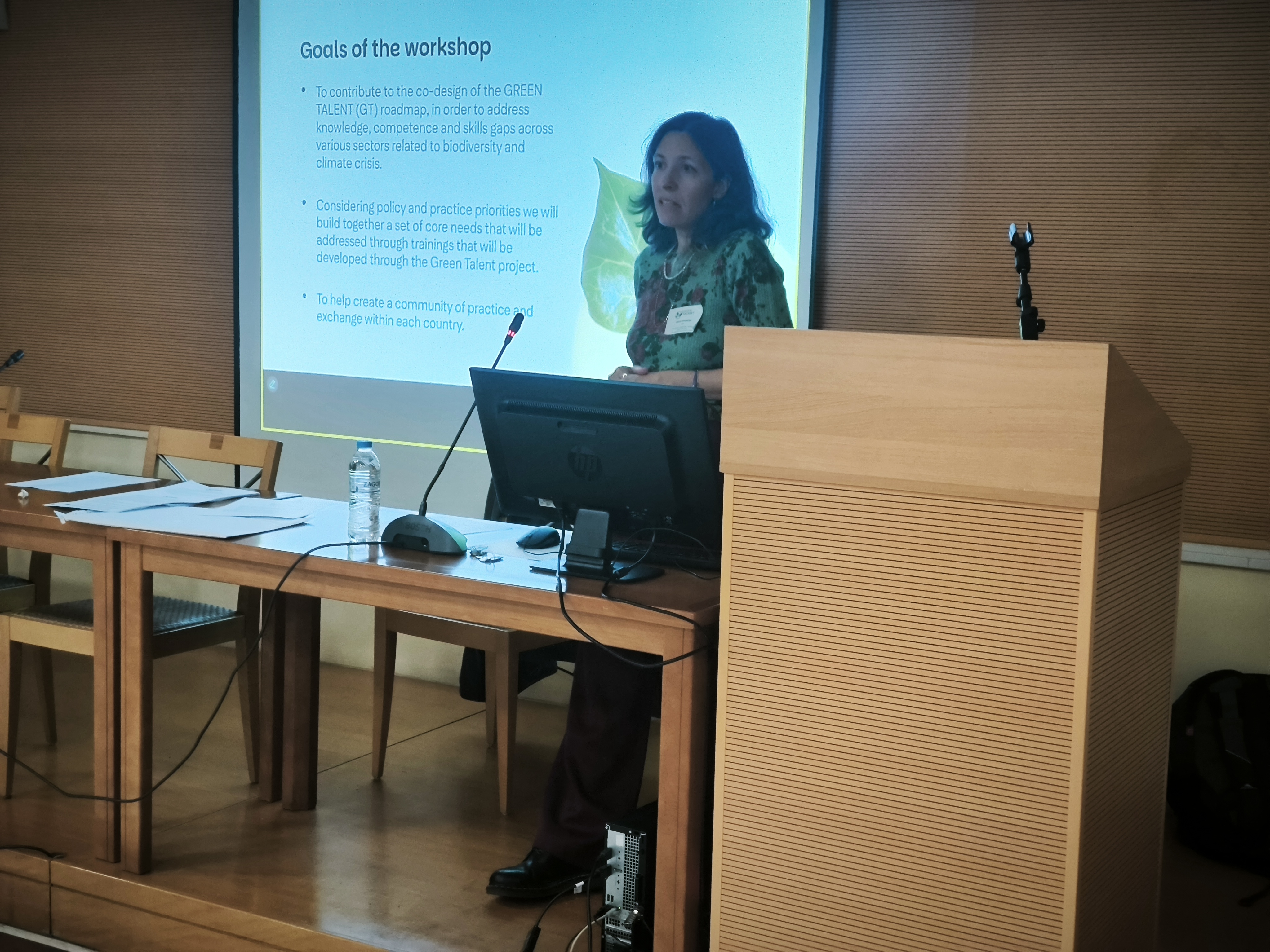 |
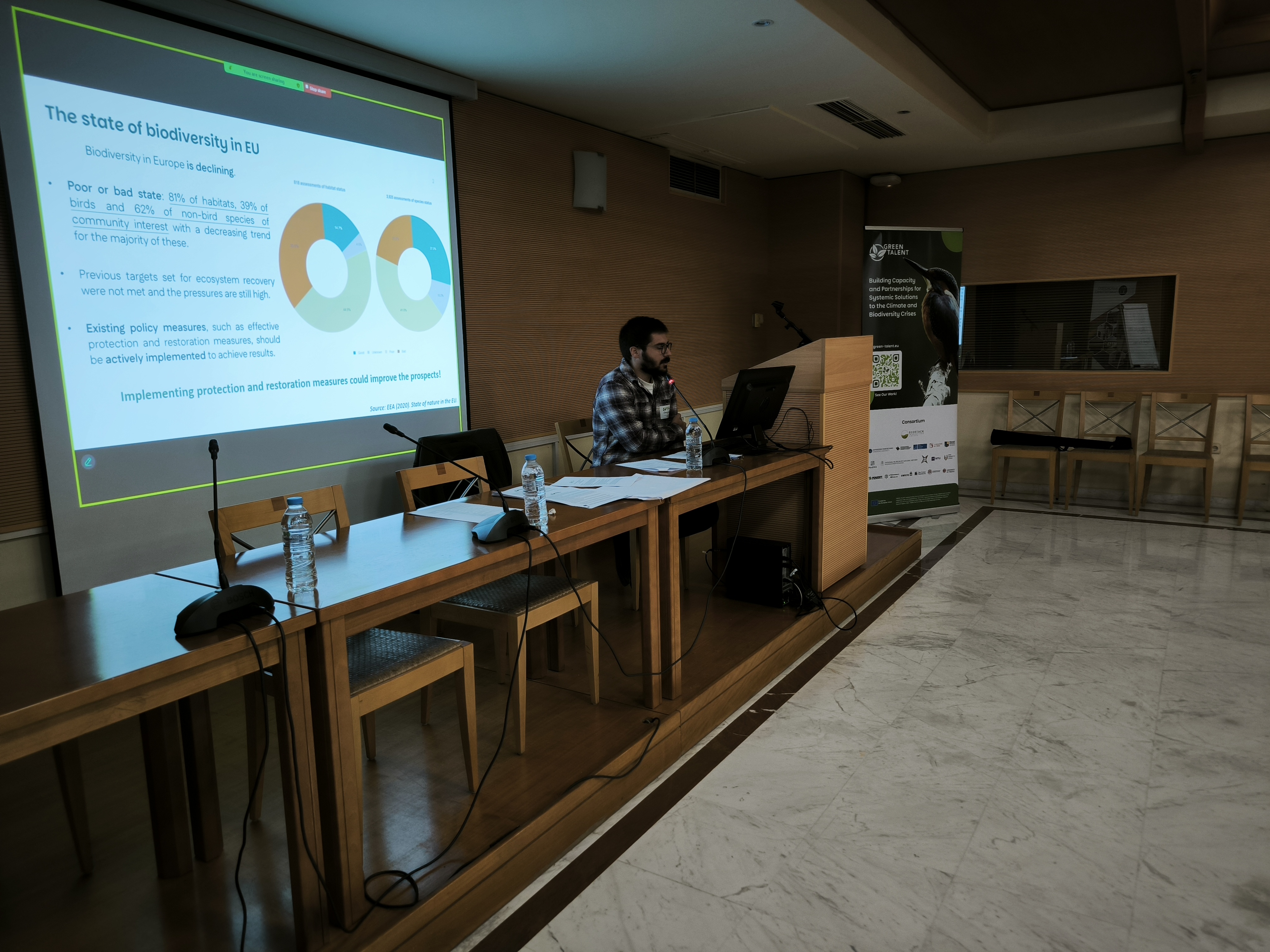 |
The second part of the workshop revolved around two key exercises, aimed at mapping skills and knowledge gaps, as well as identifying training needs and priorities per sector and topic. Topics included the role of environmental action groups, nature-based solutions (NbS), biodiversity and climate change. Participants were split into several groups, each proposing ideas for further improvement of their assigned topic, which were later presented to the entire audience. These exercises served as a starting point for both project partners and stakeholders to bridge the gap between sectors and understand the extent to which skills and competences in the field of biodiversity and climate change are lacking, as well as identify possible solutions to enhance R&I capacity and cross-sectoral collaboration.
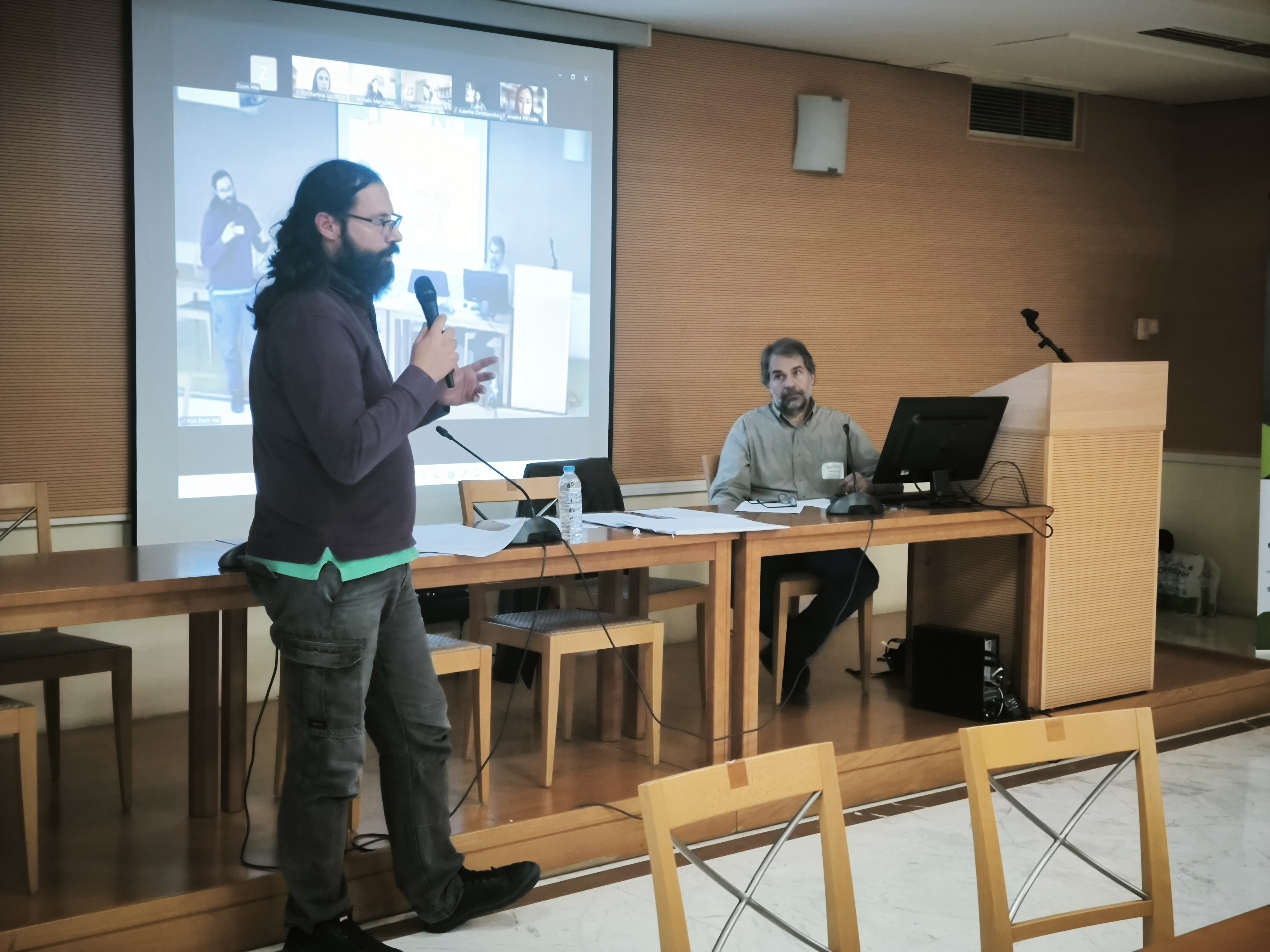 |
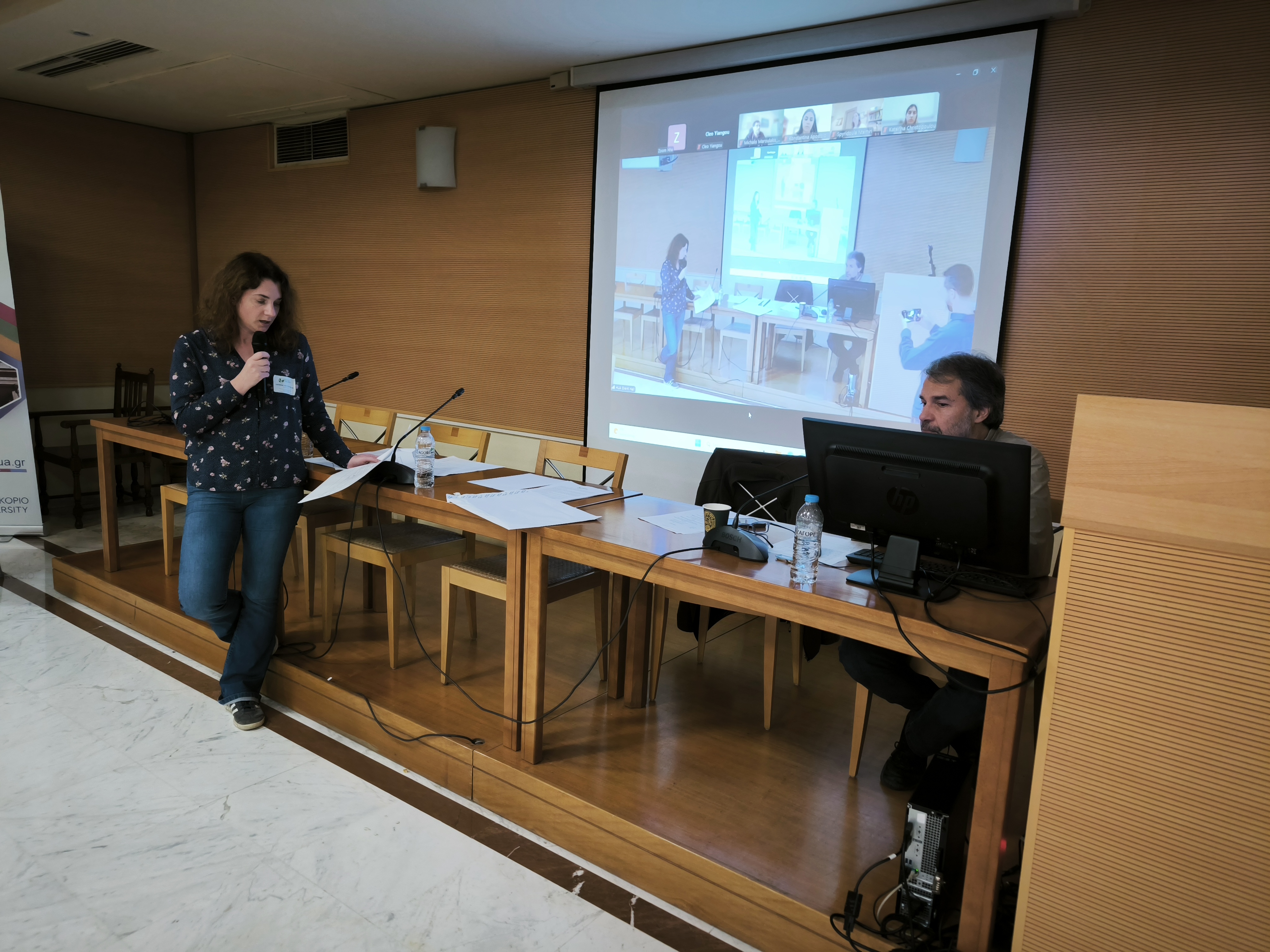 |
 |
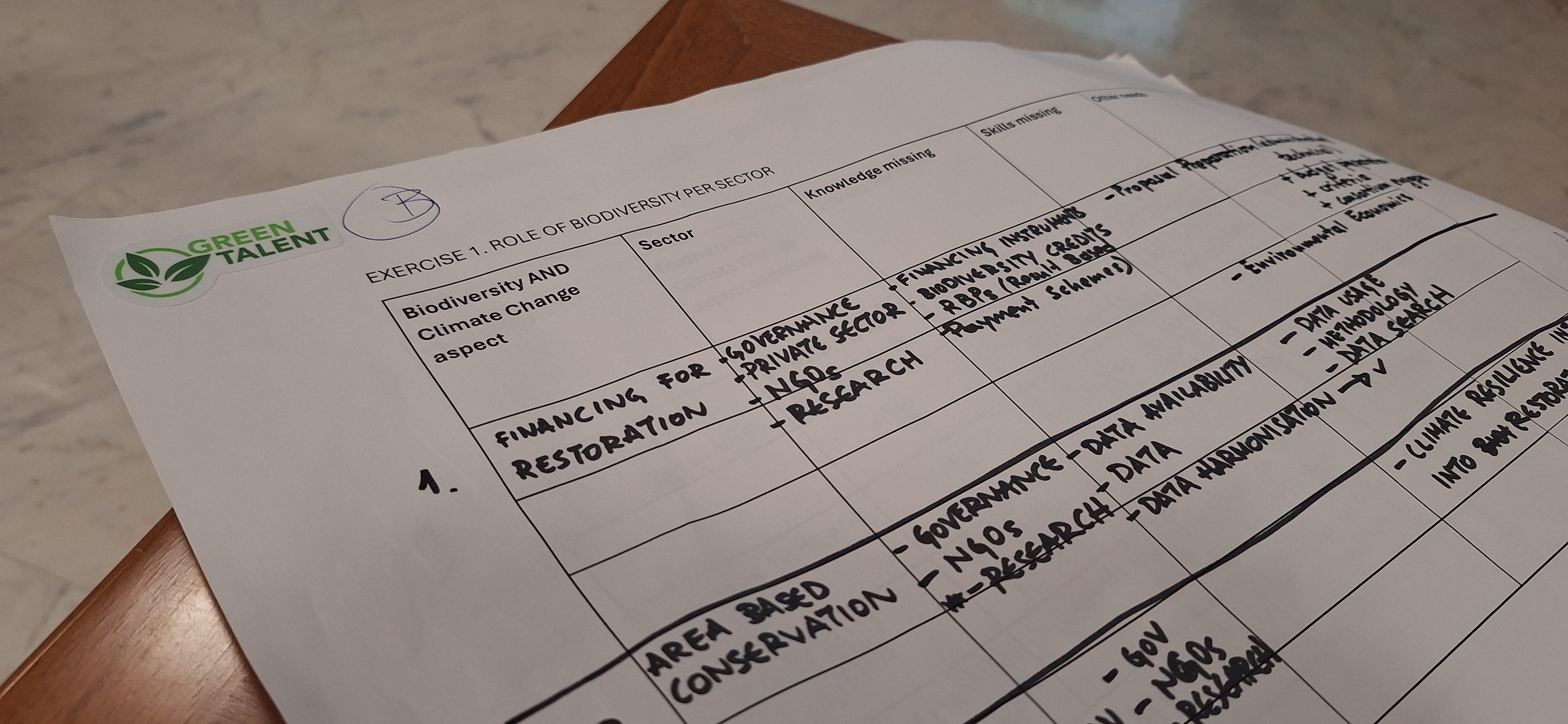 |
Towards the end of the workshop, Natalie Kafantari from The Cyprus Institute, a partnering organisation within Green Talent, gave a presentation on the role of the project’s PAR groups in Widening Countries and their expected impact on the development of the Green Talent Roadmap. The event finished with a fruitful discussion and feedback session, handing the floor to participants to share their impressions and general suggestions on how to better tailor future training activities to meet their needs.
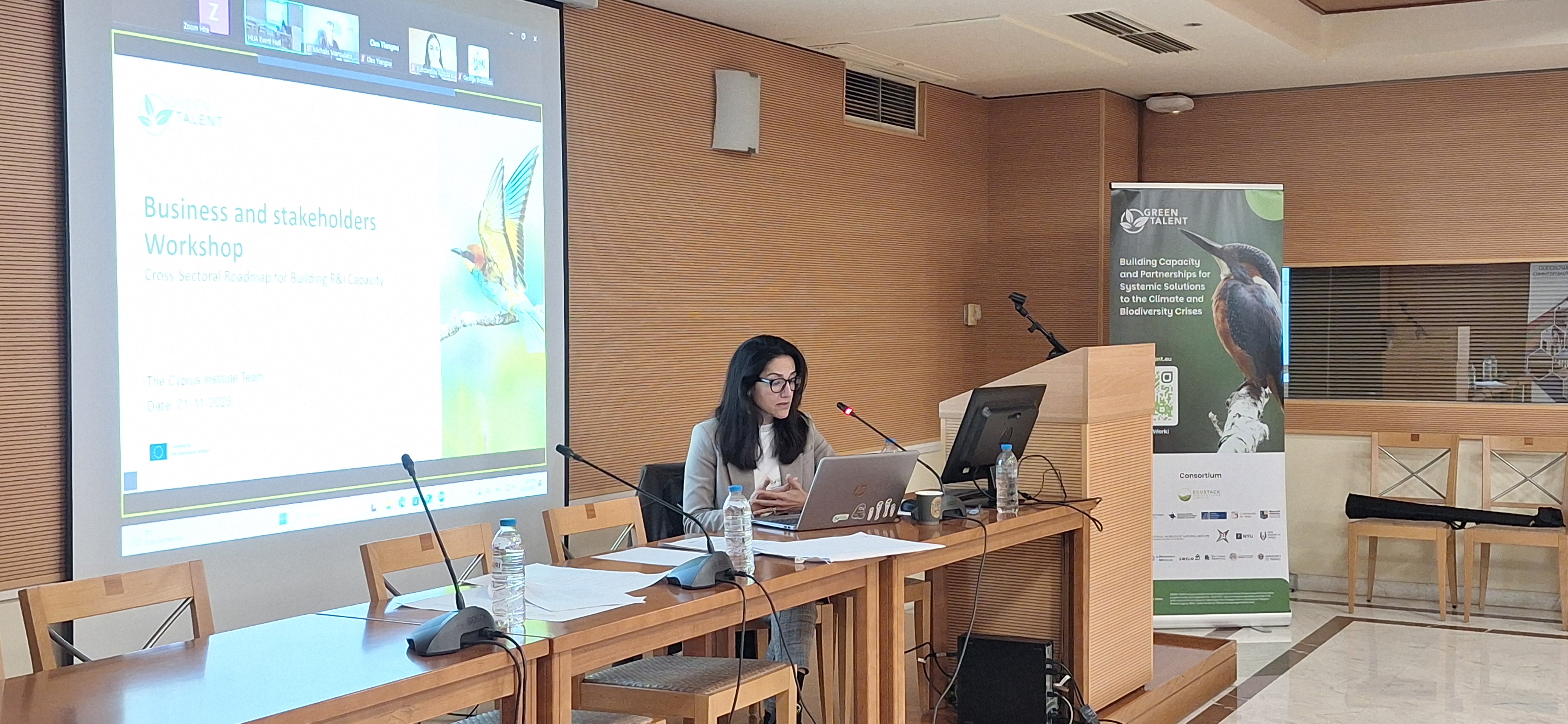
Attended both by project participants and stakeholders, the workshop brought together diverse voices, sparked new creative ideas, and set the foundation for building a stronger, more coordinated approach to biodiversity and climate action within the Green Talent Roadmap.
